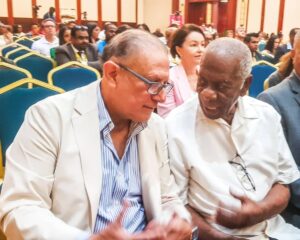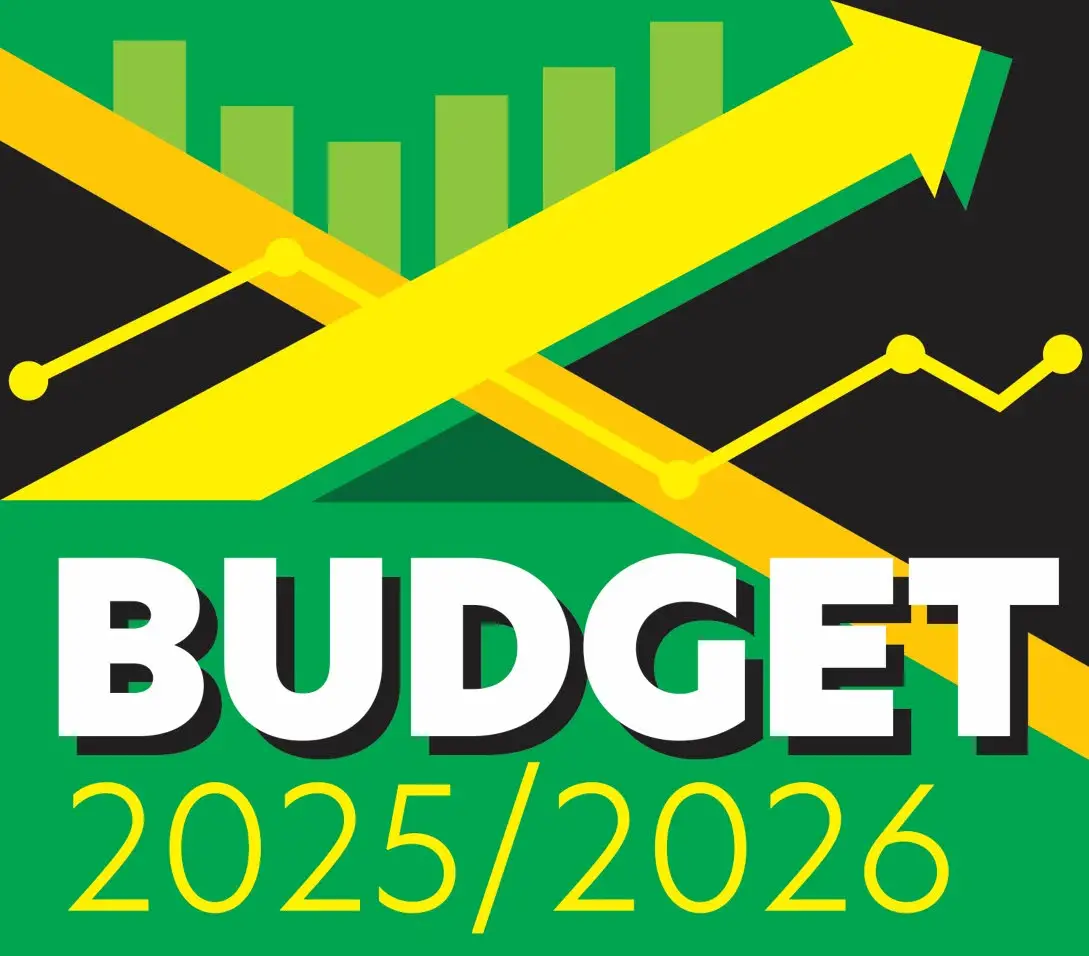
Where’s the money?
Opposition leader questions budget funding of the budget
Opposition leader Mark Golding has called into question the Government’s plans to further monetise the cash flow of government assets to fund the $1.2-trillion budget.
Golding made his remarks on Tuesday during the 2025/2026 Budget Debate. The Opposition leader described the Government’s cash flow monetisation strategy as emptying the cupboard to fund current expenditures. His current objection was related to the $66.2-billion in financial distributions that the Government expects to collect during the upcoming fiscal year, which starts on April 1. Those financial distributions make up a portion of the $139.82 billion in non-tax revenue estimates that the Government expects to collect in the year ahead.
“Recurrent expenditures ought properly to be funded from revenues generated in the year in which those expenditures are incurred. Not by selling off future income and leaving the cupboard empty for years to come. Not one school, one hospital or one water reservoir, or any other lasting national asset, has been built with those funds. Nothing that will deliver solid benefits to the country throughout those 12 years,” Golding said, in respect of the Government’s airport receivable monetisation that it completed in October.
The Opposition leader noted that he contacted the Ministry of Finance & the Public Service on the composition of those financial distributions and was informed that the major sources would come from the National Housing Trust (NHT) and monetisation of contractual cash flows. The NHT currently sends $11.4 billion each year to the Government’s consolidated fund which is managed by the Accountant General’s Department. This is done under the National Housing Trust (Special Provisions) Act, which remains in force until March 31, 2026. That left $54.8 billion in financial distributions whose sources cannot be immediately identified.
“I enquired further of the Ministry of Finance, and it has been confirmed that another large sale of future income is to take place in the coming year. However, despite my asking, no further details have been provided,” Golding added.
At the Jamaica Stock Exchange’s (JSE’s) 20th Regional Investments & Capital Markets Conference in January, Prime Minister Andrew Holness told attendees on the opening night that the Government was planning to divest its 20 per cent stake in TransJamaican Highway Limited (TJH) and a portion of the Port Authority of Jamaica’s (PAJ) business process outsourcing (BPO) asset portfolio.
The National Road Operating and Constructing Company Limited (NROCC)’s offer for sale of its 20 per cent stake in TJH closed Tuesday. That offer was set to raise between $6 billion to $9 billion for NROCC, which is currently TJH’s largest shareholder. The offer closed a day after the TJH board declared a dividend of $0.1258 to be paid on April 24 to shareholders on record as of April 3. If NROCC’s TJH shares are allocated after April 3, it would also receive a $314.63 million gross dividend from TJH. NROCC is a state entity which represents the Government’s interest in the development of tolled highways.
The upsized gross value of the TJH offer and TJH dividend would be in the region of $9.31 billion, just slightly above the $9.18 billion in revenue that the Government is projecting to lose in the upcoming fiscal year. Finance Minister Fayval Williams unveiled different initiatives for the upcoming fiscal year which included a reform on the general consumption tax (GCT) charged on electricity to residential customers, an increase in the GCT registration threshold and the increase in the personal income tax threshold. The adjustment in the income tax threshold from $1.7 million to $1.8 million is set to cost the Government $4.80 billion for 2025/2026. The subsequent adjustments of the threshold to $2 million by 2027 are set to cost $13.97 billion over three years.
Apart from concerns raised by the Opposition Leader on the non-tax revenue component, different private entities have expressed concern regarding the funding of the increased income tax threshold in the coming years. In a media release published on Monday, the Private Sector Organisation of Jamaica (PSOJ) stated, “The proposed increase in the personal income tax threshold will cost J$13.97b over three years. However, it remains unclear how the Government plans to offset this revenue loss.”
Even PwC (PricewaterhouseCoopers) in its budget review raised this concern on the unknown status of the funding needed to cover the income tax threshold adjustment over the next three years.
The 2025/2026 budget has the Government set to collect an estimated $1.09 trillion in recurrent revenue and $1.26 trillion in recurrent revenue and loan receipts. Recurrent expenditure is estimated at $1.20 trillion with $62.60 billion in capital expenditure across several ministries.
“Clearly, this will be another ‘run with it’ transaction, selling off future revenues to fund expenditures in this year’s budget. In other words, further emptying the cupboard in the coming years with nothing lasting to show for it. That is not sound fiscal management. That is playing fast and loose with the future of the country,” the Opposition leader stated.
The Government’s 2024/2025 budget had $25.12 billion in projected revenue losses, which was largely related to the $11.40-billion one-time reverse income tax credit and the income tax threshold adjustment from $1.5 million to $1.7 million which was estimated at $8.95 billion. That revenue loss was funded by the securitisation of Government receivables which turned out to be the Government’s revenue share from the Norman Manley International Airport (NMIA).
That securitisation process was executed through Kingston Airport Revenue Finance Limited, which raised an estimated US$480 million ($75.44 billion) through a 12-year bond. That bond was backed or secured by the transfer/assignment of the Airport Authority of Jamaica’s (AAJ’s) economic right to receive 53.22 per cent of the gross revenue’s of NMIA. The proceeds from that bond covered some debt obligations along with other budgetary measures which included the $45 billion Shared Prosperity Through Accelerated Improvement to Our Road Network (SPARK) Project. That road improvement project began recently and addresses the repair of community and main roads along with improvements to water lines.
The Government had previously announced plans to divest the Jamaica Mortgage Bank (JMB) via a public offer on the Jamaica Stock Exchange. Although JMB has not gone public yet, it is currently seeking to privatise the mortgage insurance portfolio it manages and is currently seeking a registered general insurance company to partake in the deal.
The Government had previously divested its entire interest in Wigton Energy Limited (formerly Wigton Windfarm Limited) in May 2019 and 80 per cent of its interest in TJH in March 2020 for a combined gross amount of $19.6 billion. Those funds benefited the incumbent government which had to weather the COVID-19 pandemic and a decline in economic activity. A general election was held in September 2020 and another general election is set to be held this year. Prime Minister Holness will continue the budget debate on Thursday with Finance Minister Williams set to close the debate next Tuesday.






















